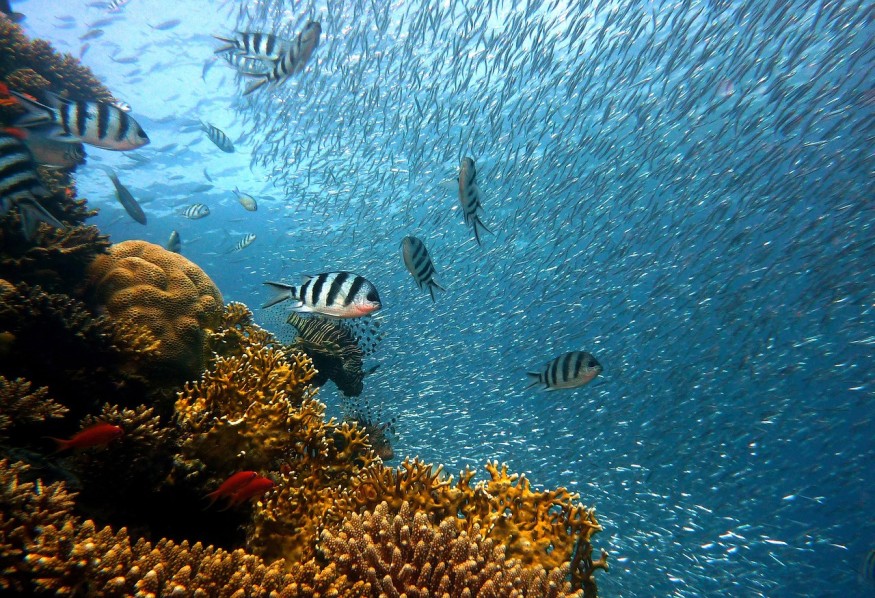Coral reefs serve as natural habitats for different fish species and other marine organisms across the world's oceans. They also boost the local economy of coastal communities, as tourists flock, snorkel, or dive just to see the natural underwater ecosystems by reef-building corals.
However, these structures are also vulnerable to external threats, including pathogenic diseases.
In a new study led by scientists from Australia, it was found that a deadly coral disease has tripled in the last 25 years as global temperatures continue to warm.
The study projected the disease could become endemic in the next century if the current rate continues. If the global coral reef system collapses, marine life and ecology will be disrupted.
The Australian scientific team has not yet identified all the many pathogens causing the coral reef disease. Yet, they outlined that pathogens like bacteria and fungi are the suspects in why some reefs get infected and die.
They linked the emergence of these infectious organisms are being caused by climate change and global warming, especially if ocean temperatures go higher.
Coral Disease Outbreak

In the study published in the journal Ecology Letters on Tuesday, June 6, lead author Samantha Burke and her colleagues at the University of New South Wales found the coral disease increased along with rise of ocean temperatures over time, where it tripled to 9.92% worldwide. Based on their model, the disease could become endemic or increase to 76.8% by the year 2100.
Burke, a Ph.D. candidate at UNSW's School of Biological, Earth & Environmental Sciences, said their findings emphasize the detrimental impacts of ocean warming to coral reefs and highlight the need to immediately mitigate climate change, as cited by Phys.org.
Coral Disease Pathogens
The study confirms that bacteria and fungi mainly cause coral reef disease. However, infections may only occur if the corals are stressed, which makes them more vulnerable to pathogens. In addition, the research team also mentioned higher temperatures heighten the growth rate of the disease-causing organisms.
The National Oceanic and Atmospheric Administration (NOAA) also acknowledge that coral diseases happen as a response to "biological stresses" like bacteria, fungi, and viruses. It also responds to non-biological stresses such as increased sea surface temperatures and among others.
In the last 10 years, the number of frequencies of coral diseases has spiked significantly, causing widespread deaths among the reef-building coral population, the NOAA emphasized.
Warming Global Temperatures
Many scientists perceive the increase in coral reef diseases is linked to the deterioration of water quality associated with human-caused pollutants and increased sea surface temperatures, which was mentioned before, according to the said U.S. government agency.
Regardless of the findings, it is still unclear if the coral disease outbreaks occurred even before the Industrial Revolution, when the anthropogenic, climate-damaging greenhouse gases started, as considered by climate scientists.
© 2025 NatureWorldNews.com All rights reserved. Do not reproduce without permission.





